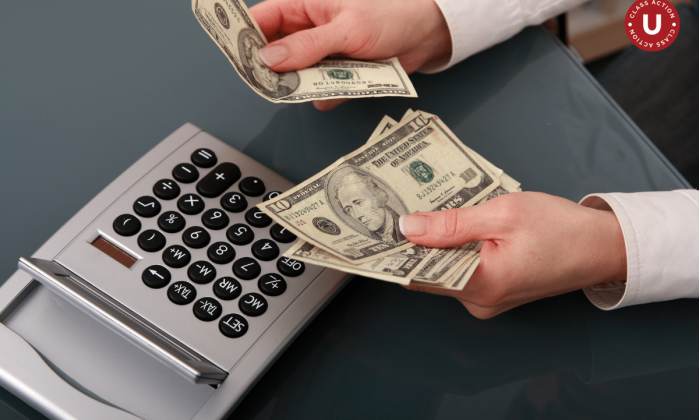Bank Fee Lawsuits
Class action lawsuits against banks for illegal fees, also known as “junk fees,” have become commonplace in recent years as more and more customers discover that their banks levy these charges against their accounts. Usually, these fees penalize customers for insufficient funds, pushing them deeper into the red when their accounts are already empty.

- Bank fee class action lawsuits focus on issues like overdraft fees, insufficient funds fees, and other unfair banking practices that may unlawfully charge customers.
- Customers who have been charged excessive or unauthorized fees by their banks may be eligible to join a class action to seek compensation.
- These lawsuits aim to hold financial institutions accountable and ensure that customers are reimbursed for unfair charges.
If your bank illegally charged you for overdrafts or insufficient funds, you may be eligible for compensation. Joining or initiating a class action bank fee lawsuit can help you recover lost funds and other damages. Class Action U can connect you with an attorney to help you determine your legal rights and options.
Types of Illegal Fees From Banks
Some banks exploit customers by illegally charging junk fees. These typically take the form of overdraft fees and insufficient funds fees, both of which are punitive measures exacted against bank users who often are already out of money. A third unscrupulous tactic used by banks is “reordering transitions.” Though there are some subtle differences between these methods, all three serve the same function: making banks money at the expense of customers.
Overdraft Fees
An overdraft fee is charged when a bank customer spends more money than is available in their account, resulting in a negative balance. The bank covers the transaction, but the customer then owes the bank the overdrawn amount, which is deducted from future deposits.
Many banks charge fees when an account overdrafts, often exceeding the actual overdrafted amount. For example, if an account is overdrawn by $15, the bank might charge a $25 junk fee, leading to a total negative balance of $40. Some banks charge a fee for each day the account remains overdrawn or for every attempted transaction, further deepening the customer’s debt.
Insufficient Funds Fees
Like overdraft fees, insufficient funds fees occur when a bank customer’s transactions exceed their account balance. These are sometimes known as non-sufficient funds fees (NSF). However, unlike with overdraft fees, the bank does not cover the overdrafted transaction, causing it to bounce and the customer’s purchase to be declined.
NSF fees are particularly egregious when banks charge multiple fees for a single bounced transaction. In other words, even if the bank knows there are insufficient funds in the account, it may try to process the transaction multiple times, charging a fee each time.
Reordering Transactions
Another dishonest practice used by many banks is reordering transactions, an account-draining process that increases the likelihood of an overdraft or insufficient funds to cover a transaction. Banks achieve this by processing larger charges first, regardless of the order in which they occurred.
For example, if you have $25 in your account and make three purchases of $4, $15, and $125. If the bank processes the smaller charges before the $125 charge, the customer would overdraft once. However, by processing the $125 charge before the $4 and $15 charges, the customer overdrafts three times, resulting in more fees.
ATM Fees Lawsuits
Banks may also charge junk fees at ATMs.While small processing fees for ATM transactions are standard, some banks charge ATM fees simply for checking your balance without making a withdrawal.
Banks often fail to disclose these fees. For example, they may turn a $40 withdrawal into a $43 one without informing customers about the $3 fee. These junk fees are often illegal, and you may have grounds for a bank fee lawsuit if they happen to you.
How to Prevent Illegal Bank Fees
To prevent junk fees, you can set up automated notifications for unauthorized transactions or when your balance drops below a certain amount. Linking bank accounts can also help by automatically moving funds from savings to cover checking account shortages, and thereby avoiding fees.
Examples of Bank Fee Class Action Lawsuits
Junk fee class actions have become more prevalent in recent years, with many major banks paying significant sums to affected class members. Some high-profile examples include:
- Wells Fargo – Over $3.7 billion in reimbursements and fines for junk fees on bank accounts, mortgages, and auto loans.
- Bank of America – $100 million to consumers harmed by junk fees and other dishonest activity, plus $150 million in penalties. Separately, $8 million for duplicative overdraft fees.
- Chase, Wells Fargo, and Bank of America – Collectively reached a $67 million settlement for junk ATM fees.
- Fifth Third Bank – A proposed $20 million penalty for junk fees on auto loans held with the bank, plus “paying redress to approximately 35,000 harmed consumers, including about 1,000 who had their cars repossessed.”
As of August 2024, there are ongoing junk fee class actions against a number of major banks in the United States, including JPMorgan Chase. If you believe you are eligible to join or start a class action bank fee lawsuit, reach out to Class Action U to connect with a skilled attorney.
Contact Class Action U to Learn About Filing a Bank Fee Lawsuit
Regularly checking your accounts and updating your notification settings can help you stay on top of junk fees. Thousands of people across the country are charged potentially illegal fees by their banks. Many have recovered significant damages through class action bank fee lawsuits.
If your bank is charging you unfair junk fees, an experienced attorney can help you determine your legal rights and options. You may even be able to initiate or join a class action bank fee lawsuit. Contact us today to connect with a skilled class action attorney.
"*" indicates required fields